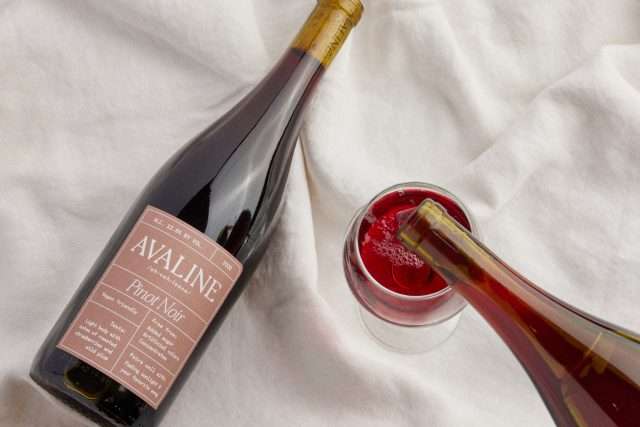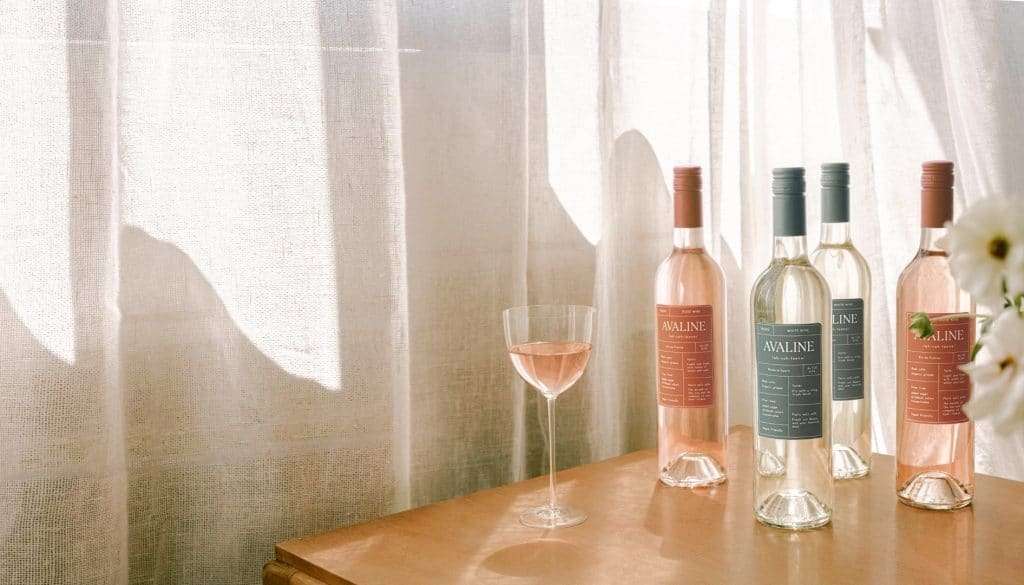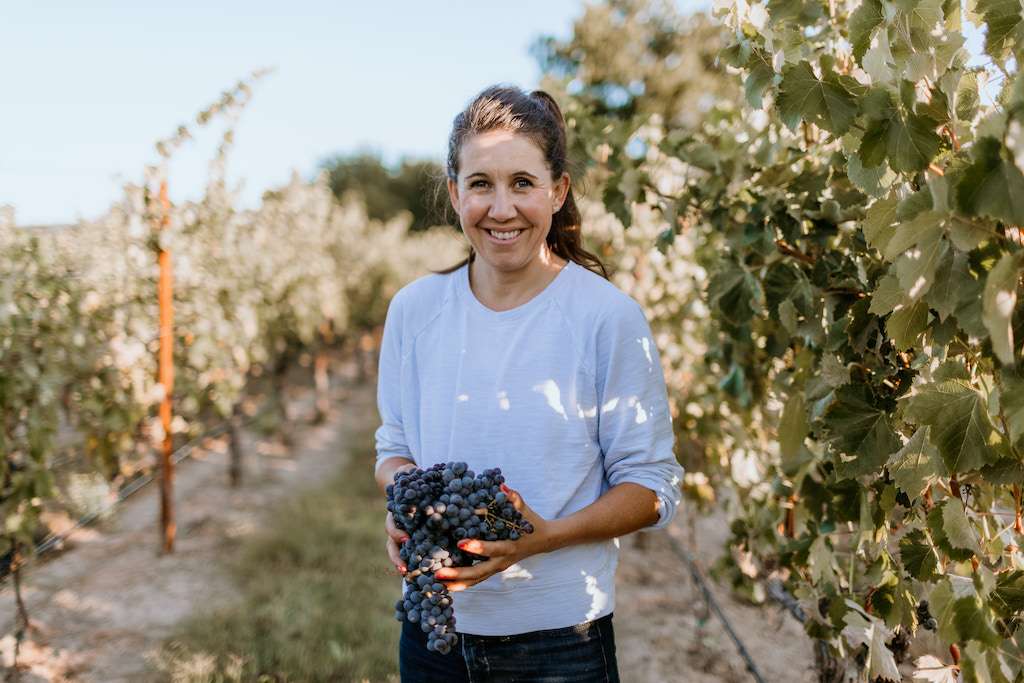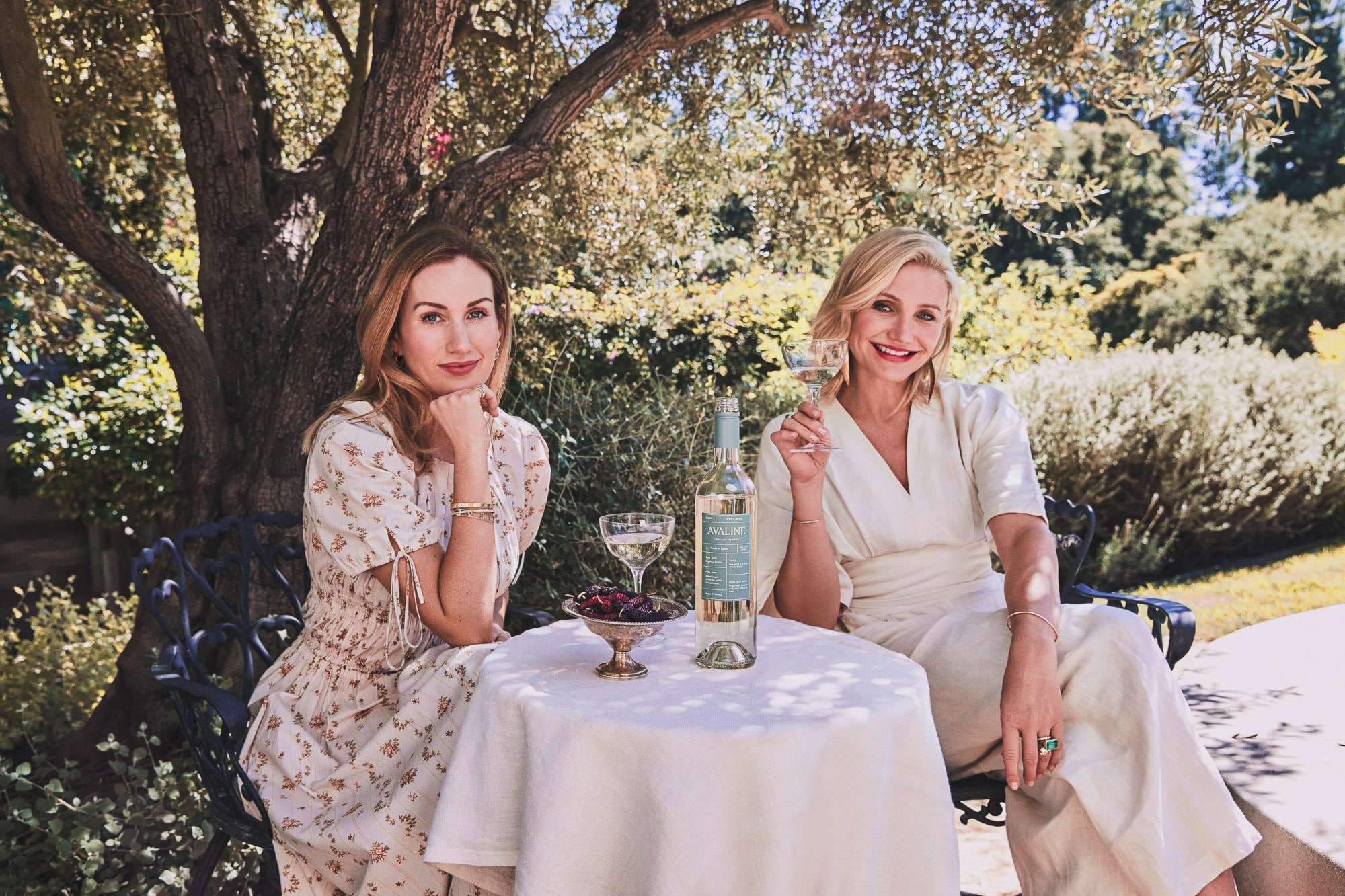It never hurts to have a celebrity behind your brand. But for Avaline, the wine brand co-founded by Cameron Diaz and Katherine Power in 2020, the wine is an A-lister in its own right.
When we think of what goes into a glass of wine, we typically think of fermented grapes. But it’s so much more than that. It’s the terroir. It’s the chemicals in the soil, or lack of them. It’s the type of grape, the aging, the craftsmanship.
Overall, there are more than 70 ingredients that can be added to wine. Winemakers aren’t currently required to tell you any of that. And while those rules may soon be changing, Diaz and Power have made it a priority from the start. “We’re used to turning a product around and going, ‘What’s in this?’ And it just isn’t a practice in the wine industry,” Diaz told Harper’s Bazaar last year.
“We really made it for consumers like ourselves,” Diaz said. “Our first step with Avaline was to create a wine that had the standards of winemaking that we wanted, but also to really just speak to the customer who values that in what they consume — like us.”

That approach has worked. The label now competes across a range of red, rosé, white, and sparkling. And with the label’s commitment to 100 percent organically farmed grapes, no additives, and full transparency, Avaline is now the second best-selling organic wine on the market and number one in the ultra-premium sector.
It’s producing wine that’s better for the people who grow and drink the grapes as well as the air, water, and soil, and the region’s biodiversity — factors consumers are becoming more interested in than ever before.
“The farmers that we are using for our wines are really highly regarded winemakers, and they’ve been in generational farms who’ve farmed organically most of their existence … and there’s so much reverence for a well-maintained vineyard, like the Côtes du Rhône, where our red comes from,” Diaz said. “And it’s amazing, too, because they’re generational farms. So everybody we met, all of our providers, all of our winemakers have grown up on those farms; like, in the homes and on the vineyard. That’s what they’ve done their whole lives. It’s so incredible.”
“Historically, if you put ‘organic’ in your label, you might end up in a weird section of the grocery store or people would assume it doesn’t taste good,” Power said. But through its partnerships with eco-friendly vineyards and its ability to connect with a wide audience, Avaline says it is changing the narrative about organic.
“Wine is so symbiotic with community and friendships and celebrations, and that’s been really fun, to kind of rally around that,” Power said.
We caught up with one of Avaline’s winemakers, Ashley Herzberg, to chat about the winemaking process, why organic wine really does taste incredible, and why the industry needs more women.
Interview edited for length and clarity.
Ethos: Why is label transparency something Avaline has focused on?
AH: This really stems from our founders. They were shocked when they learned about the kinds of ingredients that can be added to commercially-made wines. It was very important to them to let consumers know what they were drinking and by disclosing all the ingredients and calories on Avaline’s labels, consumers are able to make an informed choice about the wines they decide to drink.
Ethos: There is a persistent myth that organic wine doesn’t taste as good as conventional. Can you speak to that?
AH: I think that myth has many layers, but it comes down to the way people equate consistency with quality. In conventional winemaking, there are more than 70 additives that a winemaker can add to make a wine that tastes consistent year after year. Organic wines have been thought to lose that kind of consistency because fewer additives are used. In my experience, organic wines can taste just as consistent through meticulous winemaking and farming practices — all without those extra additives.
Ethos: How significant are the benefits of organic wine?
AH: Knowing and choosing the ingredients in your wine allows you to choose what is best for you. It’s also a benefit for the environment — choosing organic farming practices allows for biodiversity, clean water runoff, and good soil health.
Ethos: What made this a core focus for Avaline?
AH: Cameron and Katherine already shop for organic groceries and skincare products, but they felt like it wasn’t as easy to shop for organic wine.

In their experience, they could find organic wines at specialty shops, but when it came to their grocery store, there were very few options. This was really the genesis of the mission to make organic wine more accessible.
All of Avaline’s wines are certified organic which allows us to clearly label the wine “Made with Organic Grapes” and communicate to the customer at point of purchase the organic attributes.
Ethos: What is the process for finding your winery partners?
AH: We have a rigorous screening process for new partners that includes being certified organic, never adding sugars to their wines, and using vegan fining agents (to name a few).
From there, quality and flavor are the highest priority. I work closely with the winery to make sure their farming and winemaking practices always have an emphasis on quality, and I taste the wines at each step to make sure they align with our consumer’s taste preferences.
Ethos: Do women bring a different approach to winemaking? If so, how?
AH: Well, I like to think so! It’s no secret that women throughout history have been known to have an intuition with fermentation, but what I see as the biggest difference these days is the balance that the female winemakers bring to their wines.

Women are always balancing a million things at once and their wines are no different. Making approachable wines that are nuanced, yet easy drinking, is a feat I see so many of my female colleagues achieve.
Men can have this approach at times, too, but I think some of them get carried away with making bigger, bolder wines and losing some of that feminine subtlety.
Ethos: What do Cameron and Katherine see as the biggest benefit to consumers in a product like Avaline wines?
AH: For our founders, the biggest value to the customer is making organically-certified wines more accessible across the U.S. There are many markets where wine like ours is hard to find, even if it’s there, because of a lack of labeling.
We lean into transparency to provide important information that we as consumers expect and have seen that many of our customers really value this information as well.
Related on Ethos:


